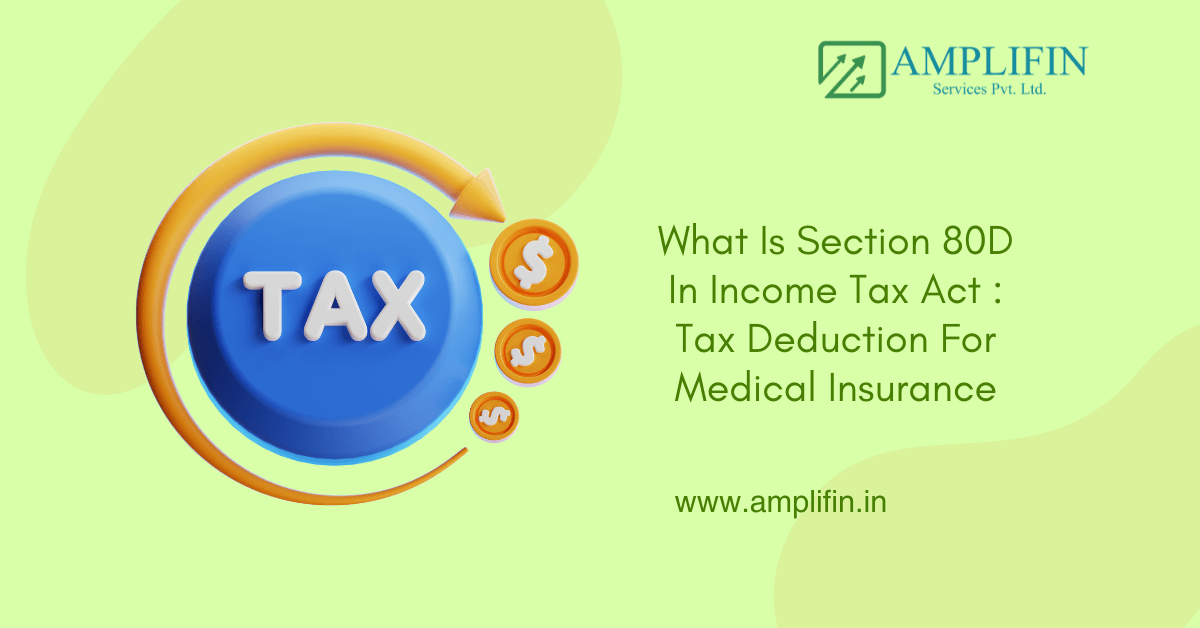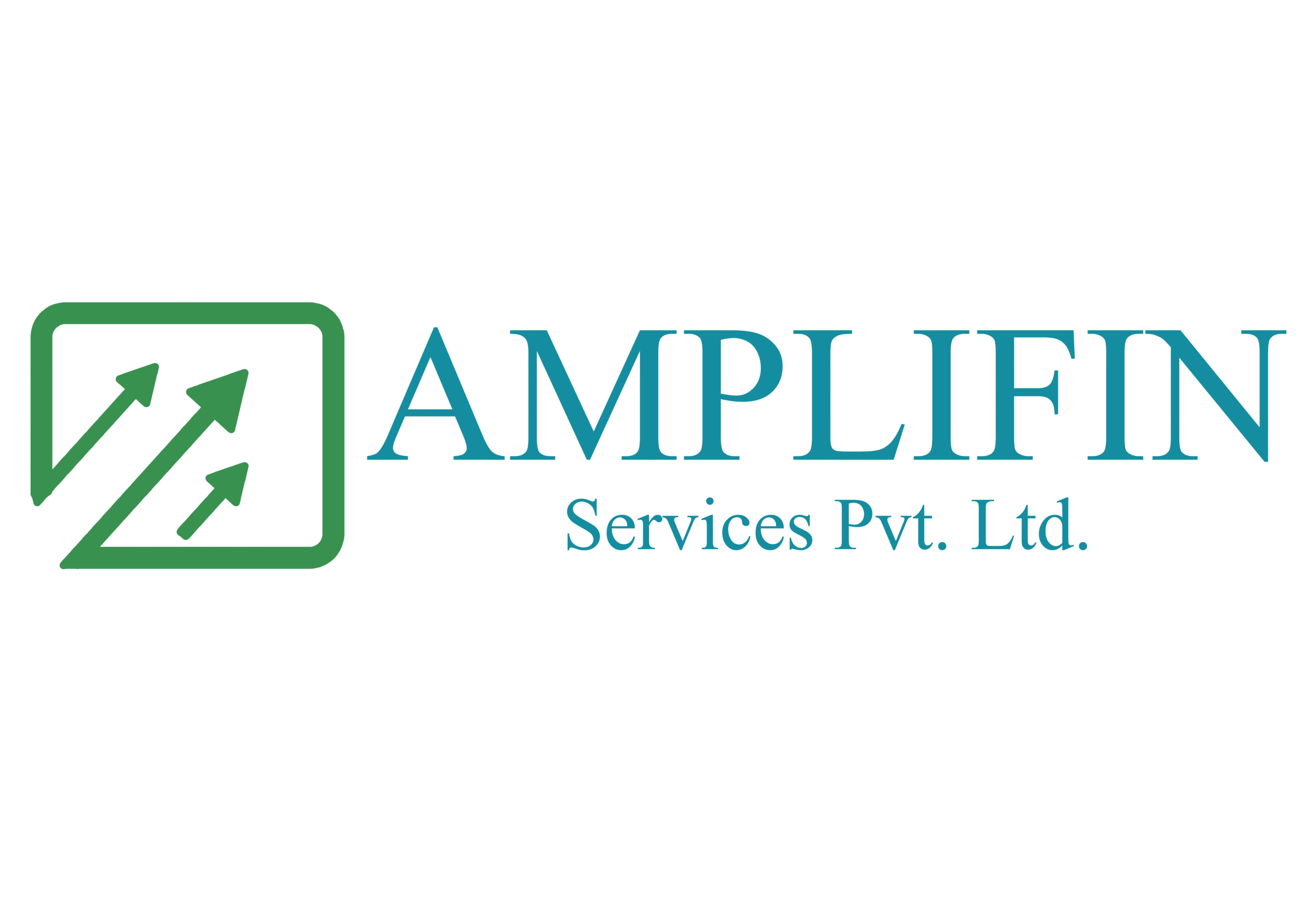What Is Income Tax Deduction Under Section 80D | Tax Deduction For Medical Insurance
In today’s world, where healthcare costs are constantly rising, understanding the tax benefits associated with medical insurance is crucial. Section 80D of the Income Tax Act offers significant tax deductions for health insurance premiums, making it an essential tool for financial planning and healthcare security. This comprehensive guide will explore the intricacies of Section 80D, helping you maximize your tax savings while ensuring robust health coverage for you and your family. Additionally, we will touch upon related provisions in Section 80C and other relevant sections.

Understanding the Basics of Tax Deduction Under Section 80D Of The Income Tax Act
Section 80D is a provision in the Indian Income Tax Act that allows taxpayers to claim deductions on health insurance premiums. This section is designed to encourage individuals to invest in health insurance, thereby promoting better healthcare coverage across the country while also offering tax exemptions for premiums paid. The deductions available under Section 80D can significantly reduce your taxable income, leading to substantial tax savings.
Who Can Claim Section 80D Deductions?
Section 80D deductions are available to:
- Individual taxpayers
- Hindu Undivided Families (HUFs)
Both resident and non-resident Indians can avail of these deductions, making it a versatile tax-saving option for a wide range of taxpayers.
The Structure of Section 80D Deductions
Deductions for Self and Family
Under Section 80D, you can claim deductions for health insurance premiums paid for yourself, your spouse, and dependent children. The maximum deduction limit for this category is:
- Rs. 25,000 for individuals below 60 years of age
- Rs. 50,000 for senior citizens (60 years and above) can be claimed as a tax exemption under Section 80D.
Additional Deductions for Parents
Section 80D also allows for additional deductions for health insurance premiums paid for parents:
- Up to Rs. 25,000 for parents below 60 years of age
- Up to Rs. 50,000 for senior citizen parents
Maximum Deduction Limit
Combining the deductions for self/family and parents, the maximum deduction available under Section 80D can go up to Rs. 1,00,000 in certain scenarios.
Eligible Expenses Under Section 80D
Health Insurance Premiums
The primary component of Section 80D deductions is health insurance premiums. This includes:
- Individual health insurance policies qualify for claim deduction under Section 80D.
- Family floater plans
- Top-up health insurance plans
Preventive Health Check-up Expenses
Section 80D also allows deduction for preventive health check-up expenses up to Rs. 5,000. This is included within the overall limit and not an additional deduction.
Medical Expenditure for Senior Citizens
For senior citizens who don’t have health insurance coverage, actual medical expenditure up to Rs. 50,000 can be claimed as a deduction.
How to Claim Section 80D Deductions
To claim Section 80D deductions:
- Keep all relevant documents (policy papers, premium receipts, health check-up bills) to claim deduction under Section 80D.
- Mention the total deduction amount in the appropriate section of your Income Tax Return (ITR) form
- Ensure you don’t exceed the specified limits for each category
Impact of Section 80D on Your Tax Liability
Let’s consider an example to understand the impact of Section 80D deductions:
Suppose you’re 35 years old and pay an annual premium of Rs. 20,000 for your family health insurance plan. You also pay Rs. 30,000 for your senior citizen parents’ health insurance. Your total eligible deduction under Section 80D would be Rs. 50,000 (Rs. 20,000 for self/family + Rs. 30,000 for parents).
If you fall in the 30% tax bracket, this deduction could potentially save you Rs. 15,000 in taxes (30% of Rs. 50,000).
Section 80D vs Other Health-Related Tax Benefits
While Section 80D is specifically for health insurance premiums and preventive health check-ups, there are other sections in the Income Tax Act that provide health-related benefits:
- Section 80DDB: Deduction for medical treatment of specified diseases
- Section 80U: Deduction for individuals with disabilities
Understanding the interplay between these sections can help you maximize your overall tax benefits related to healthcare.
Strategies to Maximize Section 80D Benefits
- Opt for a Comprehensive Family Floater Plan A family floater plan can provide coverage for your entire family under a single premium, potentially maximizing your Section 80D benefits.
- Include Your Parents in Your Health Insurance Plan By covering your parents, especially if they’re senior citizens, you can significantly increase your deduction limit under Section 80D.
- Utilize the Preventive Health Check-up Benefit Don’t forget to claim deductions for preventive health check-ups, which can contribute up to Rs. 5,000 towards your overall limit.
- Consider Top-up Health Insurance Plans Top-up plans can provide additional coverage at relatively lower premiums, allowing you to enhance your health insurance coverage while maximizing tax benefits.
Common Mistakes to Avoid When Claiming Section 80D Deductions
- Overlooking the Separate Limit for Parents Remember, the deduction for parents’ health insurance is over and above the limit for self and family.
- Ignoring Preventive Health Check-up Expenses Many taxpayers forget to include these expenses, missing out on additional deductions.
- Not Keeping Proper Documentation Always maintain premium receipts, policy documents, and health check-up bills to support your deduction claims.
The Future of Section 80D: Potential Changes and Implications
The landscape of tax deductions is constantly evolving. Some potential changes that have been discussed for Section 80D include:
- Increasing the overall deduction limits
- Introducing separate limits for different types of health insurance plans
- Expanding the scope to include more health-related expenses
Staying informed about these potential changes can help you adapt your tax planning strategies effectively.
Section 80D and the Changing Healthcare Landscape
Rising Healthcare Costs and the Importance of Health Insurance
With medical inflation outpacing general inflation, health insurance has become more crucial than ever. Section 80D not only provides tax benefits but also encourages individuals to maintain adequate health coverage, potentially saving them from financial distress in case of medical emergencies.
The Role of Section 80D in Promoting Preventive Healthcare
By including deductions for preventive health check-ups, Section 80D plays a role in promoting regular health screenings. This aligns with the global shift towards preventive healthcare, potentially leading to early detection and treatment of health issues.
Section 80D and Different Types of Health Insurance Plans
Individual Health Insurance Plans
These plans cover a single individual and are ideal for young, single professionals. The premiums paid for such plans are fully eligible for deduction under Section 80D, subject to the specified limits.
Family Floater Plans
Family floater plans provide coverage for the entire family under a single policy, and you can claim tax benefits under Section 80D. These plans often offer more comprehensive coverage at a lower premium compared to multiple individual plans, making them an excellent choice for maximizing Section 80D benefits and ensuring tax saving.
Critical Illness Plans
While primarily covered under Section 80D, premiums paid for critical illness plans may also be eligible for deduction. These plans provide a lump sum payout upon diagnosis of specified critical illnesses, offering financial protection against severe health conditions.
Senior Citizen Health Insurance Plans
Given the higher deduction limits for senior citizens, these specialized plans can be particularly beneficial from a tax-saving perspective. They often come with features tailored to the healthcare needs of older individuals.
Section 80D and Employer-Provided Health Insurance
Many employers provide health insurance coverage as part of their employee benefits package. It’s important to understand how this interacts with Section 80D:
- If your employer pays the entire premium, you cannot claim any deduction under Section 80D for this coverage.
- If you pay a portion of the premium (usually deducted from your salary), you can claim a deduction for the medical insurance premium you pay under Section 80D.
- You can still claim deductions for any additional health insurance policies you purchase independently.
Digital Health Insurance and Section 80D
With the rise of digital health insurance platforms, purchasing and managing health insurance policies has become easier. These platforms often provide: necessary documentation to claim tax benefits.
- Easy comparison of different health insurance plans
- Quick premium payment options
- Digital storage of policy documents
This digital shift makes it easier to keep track of your health insurance expenses and claim Section 80D deductions accurately, thereby aiding in tax saving.
Section 80D and Tax Planning for Different Life Stages
Young Professionals
For young, single professionals, a basic health insurance plan with coverage for self might be sufficient. The focus should be on building a strong financial foundation while ensuring adequate health coverage.
Married Couples
As responsibilities increase, considering a family floater plan that covers both spouses (and children, if any) becomes important. This stage is ideal for maximizing Section 80D benefits by including parents in the health insurance coverage.
Senior Citizens
For those above 60, the higher deduction limits under Section 80D become particularly beneficial. Investing in comprehensive health insurance coverage becomes crucial at this stage, given the increased likelihood of health issues.
The Interplay Between Section 80D and Other Financial Planning Aspects
Health Insurance and Emergency Fund Planning
While Section 80D encourages investment in health insurance, it’s important to balance this with building an adequate emergency fund to cover any additional medical expenses incurred. A good strategy is to have a health insurance plan for major medical expenses and an emergency fund for other unforeseen costs.
Section 80D and Retirement Planning
Health insurance plays a crucial role in retirement planning. By leveraging Section 80D deductions during your working years, you can ensure adequate health coverage in retirement while also enjoying tax benefits.
Frequently Asked Questions About Section 80D
Can I claim Section 80D deductions for health insurance premiums paid in cash?
No, deductions are only allowed for premiums paid through cheque, demand draft, or online transfers, and these payments should be made for medical insurance premiums to claim under Section 80D.
Are deductions available for overseas health insurance policies?
Generally, Section 80D deductions are applicable only for health insurance policies issued by Indian insurance companies.
Can I claim deductions for both mediclaim and critical illness policies?
Yes, premiums paid for both types of policies are eligible for deduction under Section 80D, subject to the overall limits.
Is there a minimum policy term requirement for claiming Section 80D deductions?
No, there’s no minimum policy term requirement. However, the policy should be in force during the financial year for which you’re claiming the deduction.
Can HUFs claim deductions for health insurance of their members?
Yes, HUFs can claim deductions for health insurance premiums paid for their members, subject to the specified limits.
Conclusion: Making the Most of Section 80D
Section 80D offers a valuable opportunity to reduce your tax liability while ensuring adequate health coverage for you and your family. By understanding its nuances and aligning it with your overall financial strategy, you can not only save on taxes but also build a robust healthcare safety net.
Remember these key points to avail tax benefits under Section 80D:
- Understand the different deduction limits for self/family and parents
- Don’t overlook deductions for preventive health check-ups
- Consider the health insurance needs of your entire family, including parents
- Keep all relevant documents safely for easy reference during tax filing
- Stay informed about any changes in Section 80D provisions
As healthcare costs continue to rise, the importance of health insurance and the tax benefits under Section 80D cannot be overstated. By making informed decisions about your health insurance coverage and utilizing the tax benefits effectively, you’re not just saving money – you’re investing in your family’s health and financial security.
